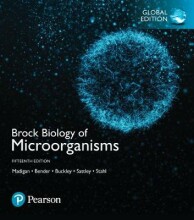Microbial Symbioses with Humans - Colonization, Succession, and Stability of the Gut Microbiota
5 important questions on Microbial Symbioses with Humans - Colonization, Succession, and Stability of the Gut Microbiota
What are the major factors influencing the development of the human microbiome during the early stages of life?
What was the objective of the Human Microbiome Project (HMP), and what limitations were associated with its study group?
Why is the mouse considered a major model for experimental microbiome studies, and what are its advantages?
- Higher grades + faster learning
- Never study anything twice
- 100% sure, 100% understanding
How do anatomical differences between mice and humans impact microbiome studies, and what insights can still be gained from mouse models?
What are some of the major differences between the mouse and human gastrointestinal systems?
The question on the page originate from the summary of the following study material:
- A unique study and practice tool
- Never study anything twice again
- Get the grades you hope for
- 100% sure, 100% understanding
































